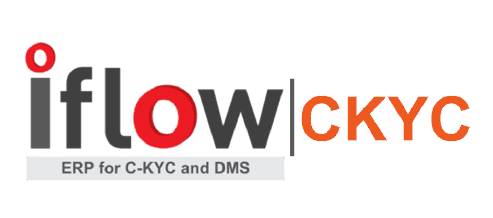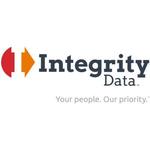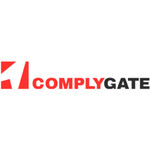Description

iSolve CKYC

EQube
Comprehensive Overview: iSolve CKYC vs EQube
iSolve CKYC and EQube are solutions offered by iSolve Technologies, each with distinct functions tailored to specific market needs. Here’s an overview of both:
iSolve CKYC
a) Primary Functions and Target Markets:
-
Primary Functions:
- iSolve CKYC (Central Know Your Customer) is designed to streamline and automate the KYC compliance process. It facilitates the efficient handling of customer identification requirements and documentation, ensuring regulatory compliance with minimal manual intervention.
- Features include centralized customer data management, automated data validation, secure document handling, and integration capabilities with various financial systems.
-
Target Markets:
- The primary target market for iSolve CKYC includes financial institutions such as banks, insurance companies, mutual fund companies, and other organizations that require diligent KYC processes. The solution is particularly attractive to large-scale operations where efficiency and accuracy in KYC are critical.
b) Market Share and User Base:
- iSolve CKYC has a growing presence in the financial technology sector, leveraging the increased emphasis on regulatory compliance. However, specific market share and user base statistics are typically proprietary, but the product is generally positioned towards institutions handling large volumes of customers.
c) Key Differentiating Factors:
- Compared to other KYC solutions, iSolve CKYC emphasizes automation and integration, aiming to reduce human error and increase processing speed.
- Its ability to securely handle and validate customer documents sets it apart, alongside robust data privacy measures in compliance with industry standards.
EQube
a) Primary Functions and Target Markets:
-
Primary Functions:
- EQube is a data management and analytics platform designed to offer business intelligence solutions. It helps organizations convert complex data into actionable insights, enabling better decision-making processes.
- The platform includes features for data integration, cleansing, visualization, and comprehensive reporting.
-
Target Markets:
- EQube caters to a wide range of industries, from retail and manufacturing to healthcare and logistics, targeting businesses that need to derive insights from large datasets and improve their operational efficiency.
b) Market Share and User Base:
- As a data analytics solution, EQube competes in a fairly crowded market with established players. Its market share is likely niche-focused, appealing to enterprises seeking customizable and scalable analytics solutions rather than one-size-fits-all products.
c) Key Differentiating Factors:
- EQube stands out for its flexibility and customization capabilities, allowing businesses to tailor the analytics to meet specific needs.
- The platform's ability to handle a variety of data sources and types, along with its focus on user-friendly interfaces for data visualization, distinguishes it from competitors.
Comparison and Conclusion
- While iSolve CKYC focuses on regulatory compliance for financial institutions, EQube is centered around data analytics and business intelligence applicable to various industries.
- In terms of market share, both products likely occupy specialized niches rather than dominating their respective markets due to competition from a wide array of technology solutions catering to similar needs.
- The key differentiator for iSolve CKYC is its emphasis on automating compliance, whereas EQube differentiates through customizable and integrative analytics capabilities.
Both products reflect iSolve Technologies' commitment to leveraging technology for process optimization and strategic growth across different sectors.
Contact Info

Year founded :
Not Available
Not Available
Not Available
Not Available
Not Available

Year founded :
2009
Not Available
Not Available
Australia
Not Available
Feature Similarity Breakdown: iSolve CKYC, EQube
To provide a feature similarity breakdown for iSolve CKYC and EQube, we need to analyze their core functionalities, user interface differences, and unique features. Here's a generic comparison based on common features in similar products, as specific details about proprietary products like iSolve CKYC and EQube may vary.
a) Core Features in Common
Both iSolve CKYC and EQube are designed to streamline business processes, often focusing on data management, regulatory compliance, and efficiency. Typical core features they may have in common include:
-
Centralized Data Management: Both platforms likely offer centralized systems to manage and store customer or client data efficiently.
-
Regulatory Compliance: Tools for ensuring compliance with regulations such as KYC (Know Your Customer) standards and other regulatory requirements.
-
Automation and Workflow: Automated processes to reduce manual intervention and streamline workflows.
-
Security Measures: Robust security protocols to protect sensitive data.
-
Data Integration: Capability to integrate with existing systems and databases.
b) User Interface Comparison
While specific details of the user interfaces for iSolve CKYC and EQube may not be available:
-
iSolve CKYC: This solution is likely to have a user interface tailored towards financial and customer data management, with features that simplify the data entry, verification, and update processes. Expect a clean, streamlined interface that's easy to navigate, with dashboards for oversight.
-
EQube: Might offer a more generalized interface focusing on business processes. Its user interface could emphasize data analytics, reporting, and collaboration, ideal for broader business intelligence tasks.
Both interfaces would aim to be user-friendly, but the focus might differ based on their core application (financial compliance vs. enterprise analytics).
c) Unique Features
Unique features in iSolve CKYC may include:
-
Specialized CKYC Processes: Specific modules or tools for central KYC processes that cater to the financial sector, offering enhanced features for identity verification and document management.
-
Industry-Specific Compliance: Features designed to meet the exact requirements of financial institutions.
For EQube, unique features might include:
-
Advanced Analytics Capabilities: Enhanced data analytics and visualization tools, possibly utilizing AI or machine learning.
-
Business Process Optimization: Broader scope in terms of business process management and optimization beyond just KYC.
Conclusion
Both iSolve CKYC and EQube offer robust solutions for their respective domains, with overlap in core functionalities such as data management and automation. The choice between them would likely depend on specific business needs—iSolve CKYC for industry-focused compliance management, and EQube for more general business analytics and optimization.
Features

Effortless Data Integration
Enhanced Data Security
User-Friendly Experience
Customer Support
Compliance and Reporting

Integration Capabilities
Collaboration Tools
Data Analytics
User Friendly Interface
Best Fit Use Cases: iSolve CKYC, EQube
iSolve CKYC and EQube are both technology solutions designed to cater to specific business needs. Here's a breakdown of their best fit use cases and how they cater to different industry verticals or company sizes:
iSolve CKYC
a) Best Fit for Businesses or Projects:
-
Financial Institutions: iSolve CKYC is primarily designed for banks, insurance companies, and financial institutions requiring stringent compliance and regulatory adherence. These entities need robust Know Your Customer (KYC) solutions to streamline customer onboarding and ensure compliance with legal standards.
-
Large Enterprises with Regulatory Needs: Companies involved in sectors like real estate or telecoms that require comprehensive customer verification processes can benefit from iSolve CKYC.
-
Organizations Seeking Automation: Businesses looking to reduce manual processes, enhance data accuracy, and decrease onboarding time through automated KYC processes can find iSolve CKYC highly valuable.
d) Industry Verticals and Company Sizes:
-
Industry Verticals: Primarily financial services, banking, insurance, real estate, and telecoms. Any industry with heavy regulatory compliance demands can make use of CKYC solutions.
-
Company Sizes: Suitable for medium to large enterprises that have the budget and need for a sophisticated, automated KYC solution to handle high volumes of customer data.
EQube
b) Preferred Scenarios:
-
Data-Driven Organizations: Companies that rely heavily on data analytics for decision-making, such as retail, manufacturing, or logistics, can leverage EQube for its data analytics capabilities.
-
Businesses Requiring Integration: Organizations that need to integrate disparate data sources and systems for comprehensive analytics can use EQube to unify and analyze their data effectively.
-
Projects Focused on Digital Transformation: Companies undertaking digital transformation projects that require enhanced data analysis and reporting capabilities can find EQube particularly useful.
d) Industry Verticals and Company Sizes:
-
Industry Verticals: Manufacturing, logistics, retail, and any other industries where data integration and analytics are critical for performance improvement.
-
Company Sizes: While EQube can be beneficial for businesses of various sizes, it is particularly advantageous for medium to large enterprises with complex data systems that require intensive data analytics and integration functionalities.
Conclusion:
-
iSolve CKYC is best suited for specific sectors with stringent KYC compliance needs and larger companies where automation and regulatory adherence are priorities.
-
EQube is tailored for any industry where data analytics and systems integration are crucial, catering especially to medium and larger companies focused on leveraging data for strategic insights and operational efficiencies.
Pricing

Pricing Not Available

Pricing Not Available
Metrics History
Metrics History
Comparing undefined across companies
Conclusion & Final Verdict: iSolve CKYC vs EQube
To provide a conclusion and final verdict for iSolve CKYC and EQube, it is essential to evaluate both products in terms of features, cost, usability, customer support, scalability, and industry application. Let’s break down the analysis:
a) Considering all factors, which product offers the best overall value?
Best Overall Value:
The best value between iSolve CKYC and EQube depends largely on the specific needs of the organization. If cost and adaptability to regulatory changes are crucial, and the business is within a highly regulated industry, iSolve CKYC might offer superior value. However, if robust analytical capabilities and data integration across platforms are more critical, EQube might be the better choice.
b) Pros and Cons of Choosing Each Product
iSolve CKYC:
Pros:
- Compliance-Oriented: Excellent for businesses needing strong compliance with CKYC (Central Know Your Customer) norms.
- User-Friendly Interface: Streamlined processes that make navigation for users straightforward.
- Regular Updates: Ensures that regulatory changes are quickly accommodated.
Cons:
- Industry-Specific: Primarily tailored for sectors requiring CKYC, potentially less useful outside of these areas.
- Customization Limits: May offer fewer customization options if the core focus doesn’t align with the user’s business processes.
EQube:
Pros:
- Versatile Analytics: Known for strong data analytics capabilities, providing insights across various data points.
- Integration Capabilities: Easily integrates with other platforms and systems, enhancing data flow efficiency.
- Scalable Solutions: Adaptable to growing business needs and varying data volumes.
Cons:
- Complex Setup: Might require more time and resources to set up and fully optimize.
- Steeper Learning Curve: Users may find it challenging initially without proper training or onboarding support.
c) Specific Recommendations for Users Trying to Decide Between iSolve CKYC vs EQube
-
Industry Needs: Determine the core functionalities required by your industry. If compliance and streamlined CKYC processes are priorities, consider iSolve CKYC. For businesses requiring deep data analysis and integration, EQube might be more fitting.
-
Budget Considerations: Evaluate the total cost of ownership, including licensing, training, and support. iSolve CKYC may have a favorable cost structure for compliance-focused businesses, while EQube's subscription and additional services could be more expensive but offer greater analytical flexibility.
-
Scalability and Growth: Consider future needs. If expected growth includes scaling operations that rely on robust data analytics and integration, EQube may offer more long-term flexibility. iSolve CKYC is ideal if the primary focus remains on compliance management.
-
User Expertise: Assess the technical expertise available within the organization. EQube might require access to technical teams for optimal integration, whereas iSolve CKYC might be easier to manage with non-specialist staff.
In conclusion, both iSolve CKYC and EQube offer distinctive strengths tailored to different organizational needs. Careful consideration of the specific requirements, industry regulations, and future goals will help guide users to the best choice for their situation.
Add to compare
Add similar companies




